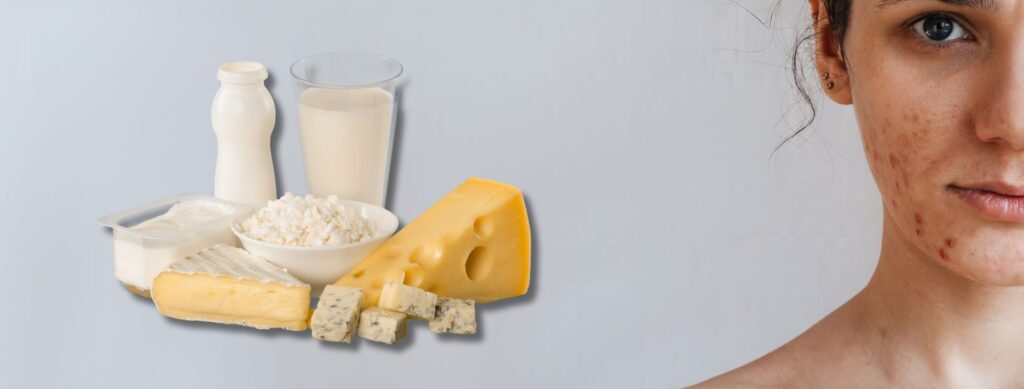Acne is a common skin concern affecting people of all ages, and its triggers can range from hormonal fluctuations to dietary habits. One topic often debated is the relationship between dairy products and acne. At Dr. Aparna’s Skin, Hair and Laser Clinic in Amberpet, we delve into the science behind this connection to provide insights and guidance for clear, healthy skin.
Understanding Acne and Its Causes
Acne occurs when hair follicles become clogged with oil, dead skin cells, and bacteria. Hormones play a pivotal role in stimulating sebaceous glands, leading to increased oil production. Diet, particularly foods that affect hormone levels and inflammation, can also contribute to acne flare-ups.
The Dairy-Acne Debate
Research has shown that dairy products, especially milk, may exacerbate acne for some individuals. Here’s why:
Hormonal Content in Milk
Milk contains natural hormones such as androgens and insulin-like growth factor 1 (IGF-1). These hormones can stimulate oil production in the skin, leading to clogged pores and acne.Impact on Insulin Levels
Dairy products, particularly skim milk, can increase insulin levels in the body. Elevated insulin can trigger a cascade of hormonal responses, including the production of androgens, which are linked to acne development.Inflammatory Potential
Dairy can contribute to inflammation in certain individuals, exacerbating acne lesions. Cheese and other high-fat dairy products may aggravate this response.
What the Research Says
Studies have found a positive association between dairy consumption and acne, particularly in teenagers. However, this relationship varies among individuals. Some may experience significant acne reduction when cutting back on dairy, while others may see no difference.
Practical Tips for Managing Acne
Dr. Aparna emphasizes a personalized approach to acne management:
Keep a Food Journal
Track your diet and skin condition to identify potential triggers, including dairy products.Opt for Alternatives
Experiment with non-dairy milk options like almond, oat, or soy milk to see if they benefit your skin.Follow a Balanced Diet
Incorporate whole grains, fresh fruits, vegetables, and omega-3-rich foods, which can reduce inflammation and support skin health.Seek Professional Advice
If acne persists, consult with a dermatologist for a tailored treatment plan. At Dr. Aparna’s Skin, Hair and Laser Clinic, we offer advanced solutions such as medical-grade skincare, chemical peels, and laser treatments to help manage acne effectively.
Conclusion
While dairy products may not cause acne for everyone, they could be a trigger for some individuals. Identifying and managing these triggers is key to achieving clear and healthy skin. If you’re struggling with acne, visit Dr. Aparna’s Skin, Hair and Laser Clinic in Amberpet for expert care and personalized treatment.
Let us guide you to radiant, blemish-free skin. Schedule your consultation today!


